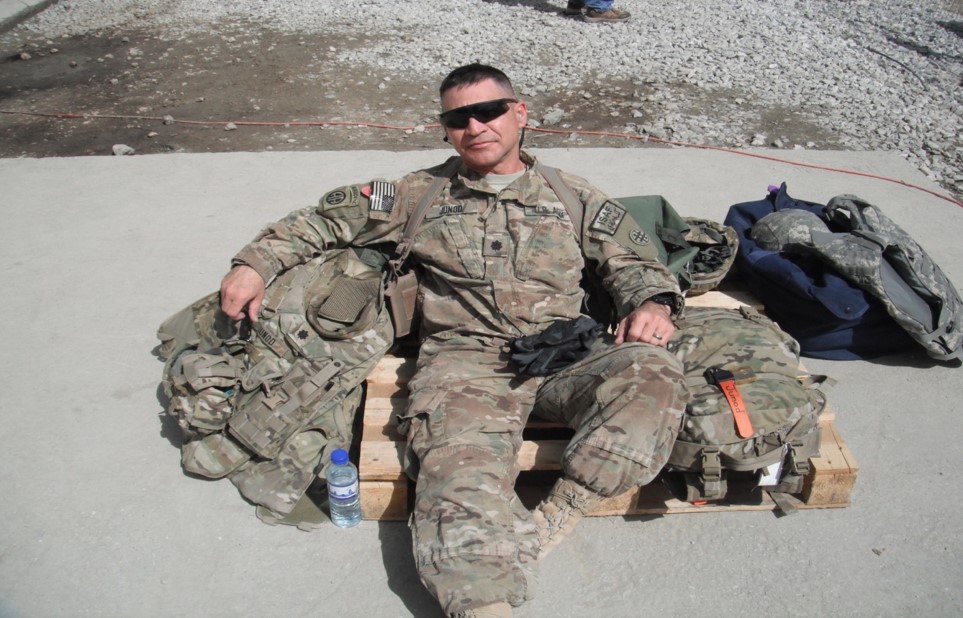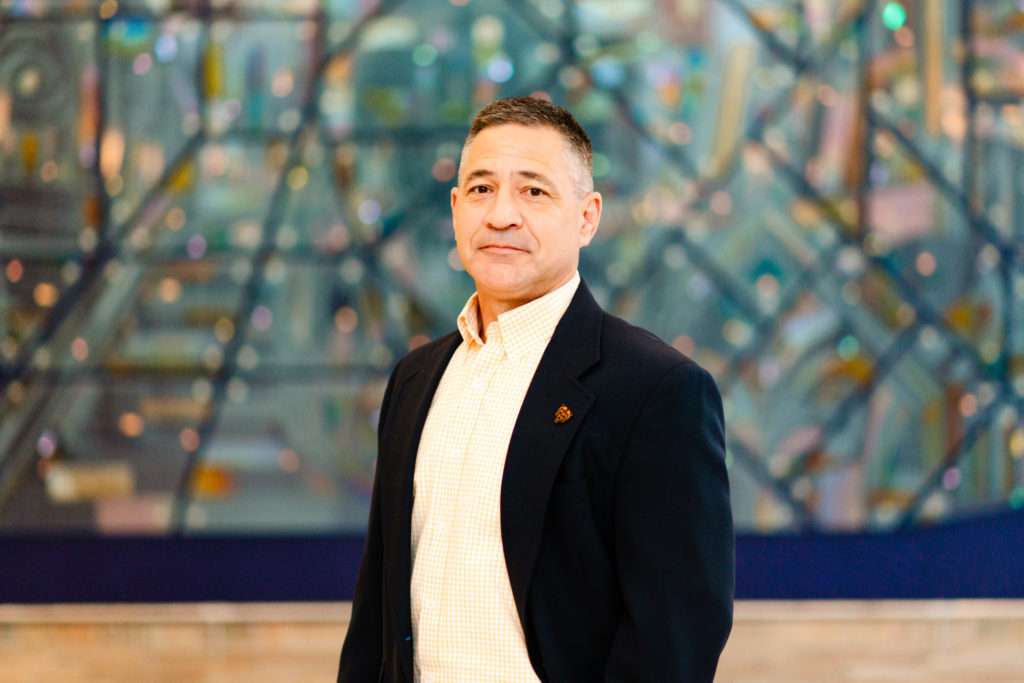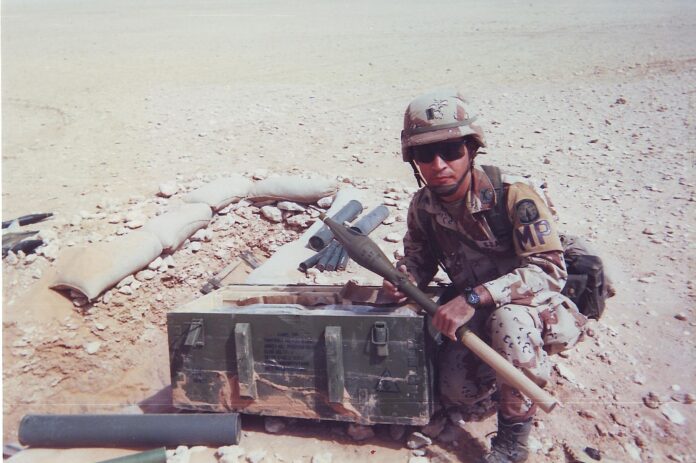Editor’s Note: For Veterans Day, The Den interviewed veterans who are now serving as faculty or staff at Mercer University. Three stories featuring those veterans — Michael Junod, Dr. Garland Crawford and Master Sgt. Craig Mattoon — will be published throughout the week. This is the first story.
Mercer University Director of the University Center Michael Junod, a retired Army lieutenant colonel, uses his past military experience to teach students transferable skills for their future careers.
Junod retired in 2017 after 30 years of service as an Army reservist, including four wartime deployments and several peacetime assignments to various countries.
“I did not initially plan to stay in for 30 years,” he said. “I thought I’d be the first one to get out, but I ended up staying.”
Junod joined the military in 1987 on an Army ROTC scholarship at the University of Florida. He said his decision to join the military was greatly influenced by his grandfather and father’s military service, as well as the opportunity the ROTC provided to pay for his schooling.
His first deployment was during the first Gulf War in Afghanistan from 1990-1991 when he was 25 years old.
“It was kind of like a great big adventure,” he said. “But when you’re that age, I did not think of the mortality of it all and those types of things.”
Much later on in his career, when he was older and had more experience, Junod said his mindset shifted.
“I was married with kids, and my perspective on what I was doing and some of the things I did was a little bit different when I did Afghanistan in 2011-2012 versus the first Gulf War in 1991,” he said.
But while his perspective changed, Junod said he has always valued his time and experience visiting other countries and learning other cultures throughout his military career.
“It was always a coalition of nations that we were working with,” he said.

Junod said it was interesting and educational to learn about other cultures, especially how they functioned. Learning about the conventions of other cultures, he said, made him understand that it was still possible for missions to be completed successfully and for his teams to achieve their goals despite differences.
“Interacting with the civilians in the area, a smile and a wave goes a long way, and I still believe that people are generally good and want the good, and you can appreciate that,” he said.
Junod said the lifelong friendships he made and having a sense of mission accomplished were the major takeaways from his military experience. To this day, he still talks with some of the people he met while in service.
He said his military service gave him “an appreciation of what the United States can do.” Every time he returned from a deployment, he still saw the United States as the greatest place in the world.
“The United States military can do things that no other nation can do, and I’ve seen it happen,” he said.
Witnessing the military’s logistical power as it moved an entire unit from Germany to Kuwait during the Gulf War, and once again when the United States provided logistical support for Afghanistan via air transit after the Port of Karachi closed, were some of those moments, Junod said.
Ultimately, he retired because he ran out of time to serve. He said 20 years is considered a full term, but he was able to extend his service another decade through promotion.

Prior to joining Mercer in 2003, Junod worked for the Macon Centreplex.
“I worked there for about 14 years, and the Mercer folks recruited me to come over here, and I was very excited to do so,” he said.
Working at Mercer has provided him with an opportunity to apply his skill set and knowledge he learned in the military in different environment, he said. Both of his daughters graduated from Mercer, and he was able to use his benefits from the G.I. Bill to help pay for their education.
Junod said he likes working with Mercer students.
“I get a lot of enjoyment and pleasure seeing young people grow and develop and move on to bigger and better things,” he said.
He said he tries to emphasize transferable skills he learned in the military to students who work in the University Center. Among all skills, good communication and teamwork are the most significant, he said, as is being authentic in leadership.
“I’m not trying to have or train a military organization here, but certainly the leadership skills that I learned through the years, they translate into what we do,” Junod said.
He said the military is an avenue that provides many different opportunities for individuals unsure of the next step in their career.
“I encourage people to go see that very big world,” he said. “Go out there. Do it while you’re young, while you don’t have a lot of things that are tying you to one place.”
Becoming a part of the military was a defining part of his identity.
“I really can’t imagine not doing it,” he said.









